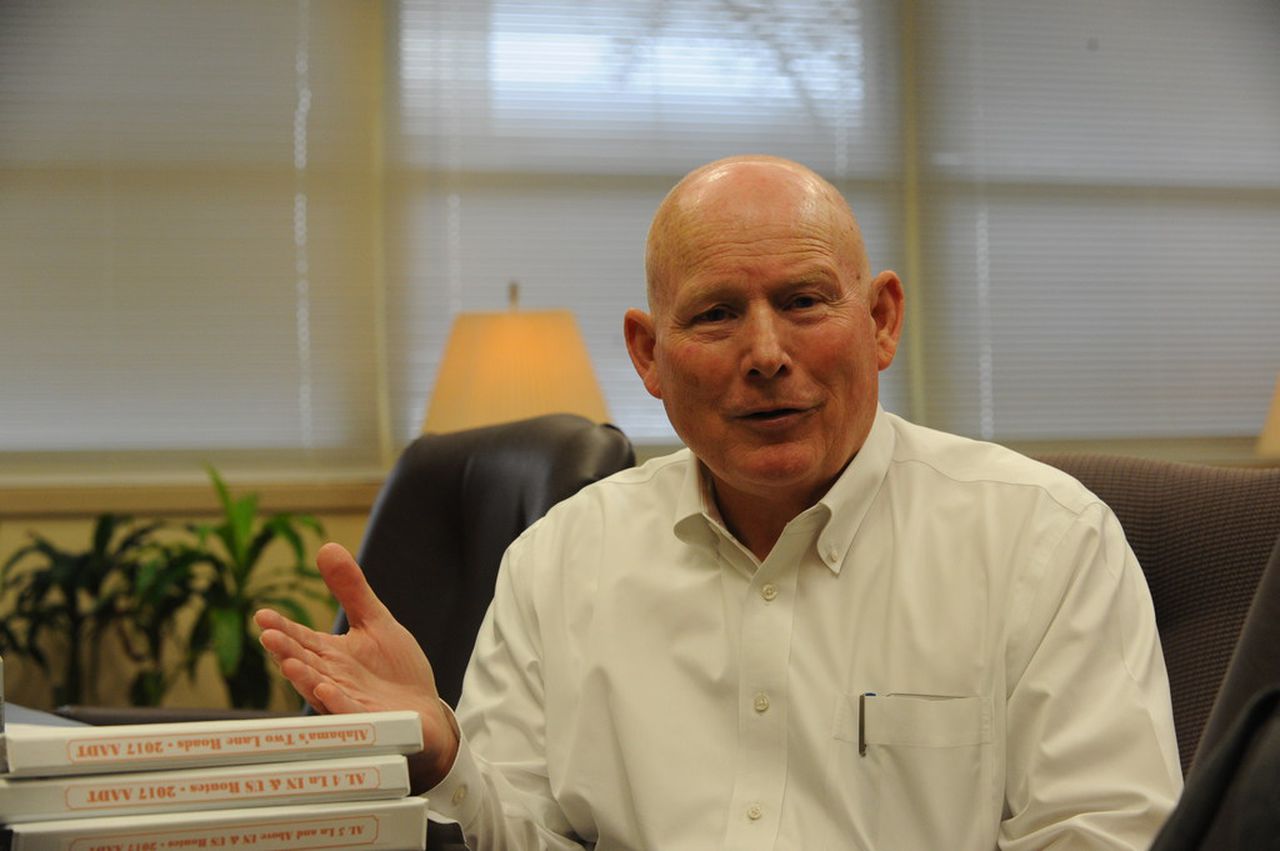Lawsuit: ALDOT director argues ‘executive privilege’ to withhold communications from Ivey’s office
Alabama Department of Transportation Director John Cooper is seeking to withhold text messages and other communications from past and present chiefs of staff in Alabama Gov. Kay Ivey’s Administration in an ongoing legal case over a bridge project at the state’s beaches.
Cooper, through his attorneys with Birmingham-based Balch & Bingham, was able to secure an emergency order from the Alabama State Supreme Court on January 31, to temporarily withhold those records based on an argument that they were protected by “executive or deliberative process privilege.”
Related content:
The Supreme Court’s order came less than 24 hours after Montgomery County Circuit Judge Jimmy Pool ordered Cooper to “immediately produce all documents” withheld during the discovery process of a lawsuit filed in October by the Baldwin County Bridge Company.
The legal wrangling thrusts the issue of whether Alabama law allows the governor’s office, or the state’s executive branch, to withhold communications under executive or deliberative process privilege. If granted, a high-level government official can withhold certain documents if officials determine they are part of their decision-making process.
Executive or deliberative privilege is the same legal process often granted to U.S. Presidents to keep information from the courts, Congress, and the public to protect the confidentiality of the office and its decision-making processes. But in recent years, governors have also sought executive or deliberative process privilege to withhold public records and state supreme courts have backed them in Washington and Oklahoma. The most recent executive privilege request comes from Florida Gov. Ron DeSantis, who is arguing against the release of documents related to a controversial migrant relocation program.
ALDOT, in a statement, said it’s entitled to withhold the communications that includes text messages and emails.
“It’s a widely-held legal principle that an agency director and the office of the governor should be able to discuss an issue and weigh options free from outside influence,” according to ALDOT’s statement to AL.com. “The ‘deliberative process’ privilege helps ensure that state officers are able to reach the best result for Alabama citizens.”
Joe Espy, a Montgomery-based attorney representing the bridge company, said he is hopeful the information will be released in the coming weeks. A preliminary hearing into the bridge company’s lawsuit is scheduled for February 22.
“The Bridge Company is diligently preparing for the hearing before Judge Pool and we’re hopeful we will be able to obtain the information which at this point has not been provided by the highway director,” said Espy.
Ivey also filed a friend-of-the-court motion on January 31, requesting to brief the Supreme Court in support of Cooper’s argument for protecting the communications between ALDOT and her office.
Ivey’s motion came less than a week after she signed an executive order for state agencies to respond to requests for public records.
‘Scant case law’
The bridge company, behind its attorneys, requested the documents from Cooper that they believe will illustrate why he chose to build a new two-lane bridge over the Intercoastal Waterway in Gulf Shores, approximately 1.1 miles west of a toll bridge adjacent to the Wharf in Orange Beach. That bridge is owned and operated by the bridge company, which long has opposed the Gulf Shores bridge project.
The bridge company’s initial complaint alleges that Cooper failed to conduct traffic studies and that he has a “personal vendetta” against the bridge company and was out to bankrupt them. ALDOT, in response, called the lawsuit “frivolous” and a potential “waste” of taxpayers’ money.
Pool, a judge appointed by Ivey to the Montgomery County Circuit Court in 2018, said in his January 30 order that “scant case law exists in Alabama” addressing executive or deliberate process privilege.
Pool cited a 1978 Alabama State Supreme Court decision in which the court denied an executive privilege request to prevent records being released in an ongoing criminal case. Deliberative process, referred to as a “subspecies of executive privilege,” has also rarely been applied in Alabama, Pool noted.
Pool argued there is “simply no justification under Alabama law for Director Cooper to invoke the executive or deliberative process to shield otherwise discoverable and relevant information from disclosure in this case.”
He added, “There is no state secret, military crisis, diplomatic sensitivity or criminal investigation at issue.”
Cooper, as the ALDOT director, has the sole discretion to decide whether and where ALDOT can construct a public bridge in Alabama, or a major project like the Intercoastal Waterway bridge, but that he “would not proceed without advice from the Governor’s office on significant decisions regarding the project.”
‘Frank exchange’
Cooper, behind his attorneys, argue that the release of the text messages and other documents to past and current chief of staffs would undermine “the frank exchange of information needed for ALDOT to perform its essential functions.”
Those decisions, according to the court filing were capture in text messages and emails to Ivey’s former and current chiefs of staff – Steve Pelham, Jo Bonner and Liz Filmore.
“If every email or text message discussing progress of negotiations and exchanged between ALDOT and the Baldwin County Bridge Company, and recommendations from Director Cooper and the Governor’s office is a potential item of discovery and front page news … the ability of (Cooper) and his staff to engage in ‘frank and open internal communications’ on such significant transportation projects will become practically non-existent,” wrote attorney Ed Haden, on behalf of Cooper.
Haden also called the bridge company’s overall lawsuit – in which it claims that Cooper acted in “bad faith” to come up with his decision on the bridge – as “flimsy” and “bland allegations.” He also argued that the bridge company had not made “sufficient showing of how a legally-questionable request for an injunction” based on Cooper’s alleged “bad faith” is anything but a “run-of-the-mill claim” that “the complained-of governmental action was somehow unfair.”
